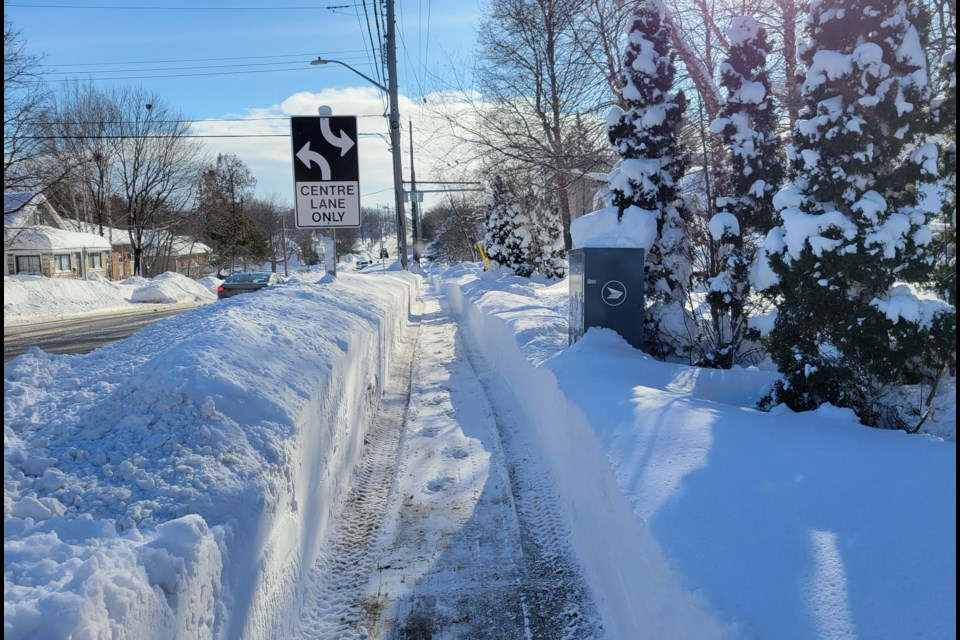The City of Orillia will stop applying sand to city sidewalks and trails this coming winter as phase two of its winter control sanding/salting strategy pilot.
City council approved the decision at its meeting this week, which comes on the heels of the success of the pilot project’s first phase, where sand application was eliminated for city roads and municipal parking lots this past winter.
In their report, staff highlighted the following benefits to phase one of the pilot:
- The city saved $80,000 on de-icing materials;
- Reduced snowpack on city roads, as salt “was more efficient”;
- 50 per cent less icy road concerns reported to the city compared to the previous two winters;
- Less time travelling to fill up city vehicles;
- Reduced spring cleaning costs, on a more timely schedule;
- A reduction in sediment and contaminants entering waterways
The pilot project was launched, in part, due to studies indicating sand is ineffective at improving traction on roadways.
City councillors said they were happy with the results of the project so far.
“My main concern was the sand that was going into our lakes, and that was put on the roads and now it's eliminated quite a bit of that, so I totally support this,” said Coun. Ralph Cipolla.
However, Coun. David Campbell questioned whether removing sand from sidewalks was the right move.
“I understood the sand on the roads: you drive by it, you're driving fast, it gets dissipated from the traffic lane, and then it's basically not doing anything except going into our systems,” he said.
“But on sidewalks, as people are walking, it's quite different, and I wondered about how much traction that provides … and I'm just a little cautious about expanding it to the sidewalks," said Campbell.
City staff responded that the new goal is to remove ice from sidewalks completely.
“If we move to just the salt on the sidewalks, the objective is to have bare concrete on that sidewalk so traction, then, does not become an issue at all, right?” responded Roger Young, general manager of environment and infrastructure services. “You can have some ice, with some sand that gives you potential traction, or you can eliminate the ice completely, so that's the objective of the program.”
Coun. Tim Lauer expressed concern about the environmental impacts of salt moving forward, and Coun. Jay Fallis wondered whether increased amounts of salt would be needed to keep the roads and sidewalks clear through the winter.
Staff responded that, through the first phase of the pilot, the city did not increase its salt application to the roads, and it will be looking at methods to keep “the salt volume consistent” and even reduce its usage in future phases of the project.
“A number of pieces of technology … have emerged, (such as) a piece of software where you're bringing really up-to-date weather into the system, and it's actually going to tell us to pretreat roads quite often, and … we're really going to be able to reduce the volume of salt that we use to follow a storm,” Young said.
“We're actually meeting with another municipality in the next few weeks to talk about their success in that space, as well, too,” he said. “We, as a lakeside community, have a responsibility to be incredibly progressive from a salt management perspective, and that's something that we're really looking at.”
City staff will report back on phase two of the project in June 2024.
Council’s decision is subject to ratification at its June 19 meeting.
